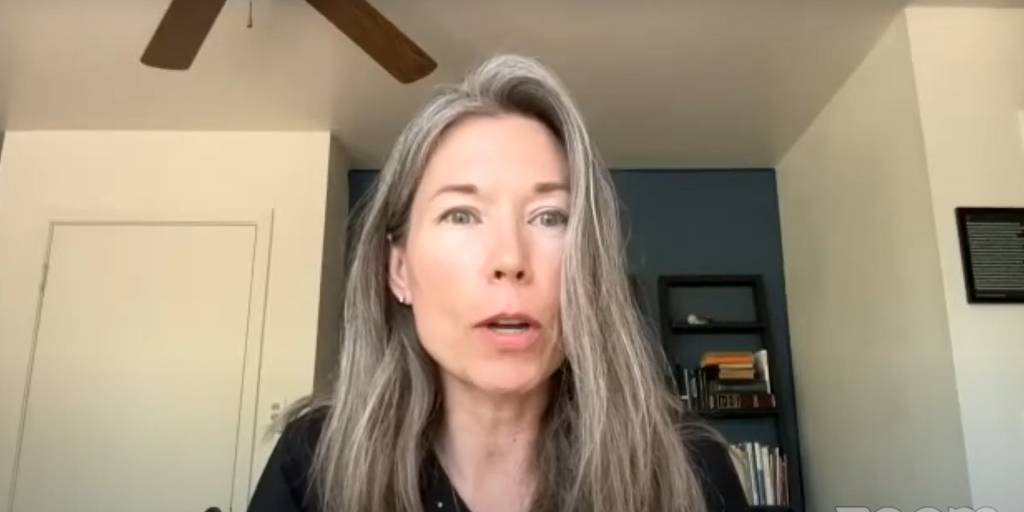UK’s Online Safety Bill Likely to Impact American User Experience
The bill will affect the tone and content of discussion on U.S.-owned platforms that wish to continue offering UK services.
Teralyn Whipple

WASHINGTON, July 21, 2023 – The United Kingdom’s Online Safety Bill will impact the American-based user’s experience on various platforms, said panelist at a Broadband Breakfast Live Online event Wednesday.
The Online Safety Bill is the UK’s response to concerns about the negative impact of various internet platforms and applications. The core of the bill addresses illegal content and content that is harmful to children. It places a duty of care on internet sites, including social media platforms, search engines, and online shopping centers, to provide risk assessments for their content, prevent access to illegal content, protect privacy, and prevent children from accessing harmful content.
The legislation would apply to any business that has a substantial user base in the UK, having unforeseen impacts on the end user experience, said Amy Peikoff, Chief Policy Officer of UK-based video-streaming platform, BitChute.
Even though the legislation is not U.S. legislation, it will affect the tone and content of discussion on U.S.-owned platforms that wish to continue offering their services in the jurisdictions where this legislation will be enacted, said Peikoff. Already, the European Union’s Digital Services Act, is affecting Twitter, which is “throttling its speech” to turn out statistics that say a certain percentage of their content is “healthy,” she claimed.
Large social media companies as we know them are finished, Peikoff said.
Ofcom, the UK’s communications regulator, will be responsible to provide guidelines and best practices as well as conduct investigations and auditing. It will be authorized to apprehend revenue if a company fails to adhere to laws and may enact rules that require companies to provide user data to the agency and/or screen user messages for harmful content.
Peikoff claimed that the legislation could set off a chain of events, “namely, that platforms like BitChute would be required to affirmatively, proactively scan every single piece of content – comments, videos, whatever posted to the platform – and keep a record of any flags.” She added that U.S-based communication would not be exempt.
Meta-owned WhatsApp, a popular messaging app, has warned that it will exit the UK market if the legislation requires it to release data about its users or screen their messages, claiming that doing so would “compromise” the privacy of all users and threaten the encryption on its platform.
Matthew Lesh, director of public policy and communications at the UK think tank Institute of Economic Affairs, said that the bill is a “recipe for censorship on an industrial, mechanical scale.” He warned that many companies will choose to simply block UK-based users from using their services, harming UK competitiveness globally and discouraging investors.
In addition, Lesh highlighted privacy concerns introduced by the legislation. By levying fines on platforms that host harmful content accessible by children, companies may have to screen for children by requiring users to present government-issued IDs, presenting a major privacy concern for users.
The primary issue with the bill and similar policies, said Lesh, is that it enacts the same moderation policies to all online platforms, which can limit certain speech and stop healthy discussion and interaction cross political lines.
The bill is currently in the final stages of the committee stage in the House of Lords, the UK’s second chamber of parliament. Following its passage, the bill will go to the House of Commons in which it will either be amended or be accepted and become law. General support in the UK’s parliament for the bill suggests that the bill will be implemented sometime next year.
This follows considerable debate in the United States regarding content moderation, many of which discussions are centered around possible reform of Section 230. Section 230 protects platforms from being treated as a publisher or speaker of information originating from a third party, thus shielding it from liability for the posts of the latter.
Our Broadband Breakfast Live Online events take place on Wednesday at 12 Noon ET. Watch the event on Broadband Breakfast, or REGISTER HERE to join the conversation.

Wednesday, July 19, 2023 – The UK’s Online Safety Bill
The UK’s Online Safety Bill seeks to make the country “the safest place in the world to be online” has seen as much upheaval as the nation itself in the last four years. Four prime ministers, one Brexit and one pandemic later, it’s just a matter of time until the bill finally passes the House of Lords and eventually becomes law. Several tech companies including WhatsApp, Signal, and Wikipedia have argued against its age limitation and breach of end-to-end encryption. Will this legislation serve as a model for governments worldwide to regulate online harms? What does it mean for the future of U.S. social media platforms?
Panelists
- Amy Peikoff, Chief Policy Officer, BitChute
- Matthew Lesh, Director of Public Policy and Communications at the Institute of Economic Affairs.
- Drew Clark (moderator), Editor and Publisher, Broadband Breakfast
Panelist resources
- An Unsafe Bill: How the Online Safety Bill threatens free speech, innovation and privacy, Institute of Economic Affairs
- Big Tech Behind Bars? The UK’s Online Safety Bill Explained, CNET, January 19, 2023
- The hidden harms in the Online Safety Bill, The Spectator, August 20, 2022

Amy Peikoff is Chief Policy Officer for BitChute. She holds a BS in Math/Applied Science and a JD from UCLA, as well as a PhD in Philosophy from University of Southern California, and has focused in her academic work and legal activism on issues related to the proper legal protection of privacy. In 2020, she became Chief Policy Officer for the free speech social media platform, Parler, where she served until Parler was purchased in April 2023.
Matthew Lesh is the Director of Public Policy and Communications at the Institute of Economic Affairs. Matthew often appears on television and radio, is a columnist for London’s CityAM newspaper, and a regular writer for publications such as The Times, The Telegraph and The Spectator. He is also a Fellow of the Adam Smith Institute and Institute of Public Affairs.
Drew Clark is CEO of Breakfast Media LLC. He has led the Broadband Breakfast community since 2008. An early proponent of better broadband, better lives, he initially founded the Broadband Census crowdsourcing campaign for broadband data. As Editor and Publisher, Clark presides over the leading media company advocating for higher-capacity internet everywhere through topical, timely and intelligent coverage. Clark also served as head of the Partnership for a Connected Illinois, a state broadband initiative.

Illustration from the Spectator
WATCH HERE, or on YouTube, Twitter and Facebook.

As with all Broadband Breakfast Live Online events, the FREE webcasts will take place at 12 Noon ET on Wednesday.
SUBSCRIBE to the Broadband Breakfast YouTube channel. That way, you will be notified when events go live. Watch on YouTube, Twitter and Facebook.
See a complete list of upcoming and past Broadband Breakfast Live Online events.








Member discussion